Though the courts’ voiding of election results after the polls have become a recurring decimal in the country’s politics, recent judgments that overturned some results in some states, perceived by many as contradictory or beyond the layman’s imagination, raise fundamental questions about the gradual over-dependence of the electoral process and outcomes on the judiciary, GODWIN IJEDIOGOR writes.
There have been misgivings and sometimes trepidation over recent ‘judicialisation’ of the electoral process and outcomes, with the recent voiding of the decision of millions of voters in choosing their next leader by the courts.
For presidential elections, in 1979, it was the judiciary that finally decided who, between Alhaji Shehu Shagari of the National Party of Nigeria (NPN) and Unity Party of Nigeria’s (UPN) Chief Obafemi Awolowo, became the president, following the controversy over what should be two-thirds of 19 states needed for a winner to emerge.
At that time, a presidential candidate was required to score 25 per cent in at least two-thirds of the states of the federation. Shagari had scored 25 per cent in 12 states and 19.4 per cent in Kano State.
But Awolowo approached the Special Election Petition Tribunal in Lagos, led by Justices Atanda Fatai Williams, with Mohammed Bello, Mohammed Uwais, Andrews Obaseki, Kayode Eso, Ayo Gabriel Irikefe and Chike Idigbe as members. On September 26, 1979, the panel dismissed Awolowo’s claims and upheld Shagari’s victory, with Eso dissenting.
In the Fourth Republic presidential election of February 27, 1999, President Olusegun Obasanjo of the Peoples Democratic Party (PDP) defeated Chief Olu Falae of the joint Alliance for Democracy (AD)/All People’s Party (APP) ticket.
But Falae challenged the outcome at the tribunal, alleging that Obasanjo was an ex-convict and a member of a secret cult, Ogboni fraternity. The case terminated at the Court of Appeal, when Justice Dahiru Musdapher, on April 16, 1999, ruled in Obasanjo’s favour.
Former President Muhammadu Buhari also challenged his electoral losses at the tribunal up to the Supreme Court, which ruled against him. But his victory over then President Goodluck Jonathan in 2015 remains the only presidential election since 1999 that was not contested.
For the governorship, state and National Assembly elections, the judiciary was the major determinant, as virtually all the victories were challenged from the tribunal to Court of Appeal and Supreme Court.
Most of the off-cycle governorship elections in the country are as a result of court rulings, starting with the Supreme Court declaration of Mr. Peter Obi of the All Progressives Grand Alliance (APGA) as the actual winner of the 2003 governorship election in Anambra State, rather than Chris Ngige of PDP.
The Appeal Court upturned the elections of governors in Edo, Ondo, Ekiti and Osun states in the 2007 elections; hence the winning candidates from different parties started their terms outside the usual May 29 swearing in.
The victory of PDP’s Timipre Sylva of Bayelsa State was challenged by Ebitimi Amgbare of the defunct Action Congress of Nigeria (ACN), who lost at the tribunal, but won the battle to void the election at the Court of Appeal in Port Harcourt. Sylva won the re-run.
The April 14, 2007 election in Kogi was won by PDP’s Ibrahim Idris, but his main challenger, the late Abubakar Audu, of the All Nigeria Peoples Party (ANPP) petitioned the tribunal, claiming his name was not included in the list of candidates for office. The results were nullified, but Idris won the 2008 re-run.
The declaration of PDP’s Oserheimen Osunbor as the winner of the 2007 election in Edo State was challenged by the ACN candidate, Adams Oshiomhole, who was eventually declared as the winner by both the tribunal and Court of Appeal in 2008.
In Ekiti, the announcement of Segun Oni of PDP as winner of the 2007 governorship election was later upturned by the Court of Appeal in favour of Kayode Fayemi of ACN in October 2010.
The election of then governor, Olusegun Agagu, of PDP in 2007 was challenged by Labour Party’s (LP) Olusegun Mimiko, who was eventually declared winner by both the tribunal and appellate court in 2009.
In Osun, the 2007 victory of PDP candidate, Olagunsoye Oyinlola, candidate, was quashed by the appellate court in November 2010 in favour of ACN’s Rauf Aregbesola after three years of legal battle.
Perhaps the most remarkable was the apex court ouster of Mr. David Lyon as the dully elected governor of Bayelsa State on the eve of his swearing in favour of Governor Douye Diri over discrepancies in the names and certificates presented to the electoral body by his running mate.
That was when Nigerians began to beam the searchlight on such judicial rulings on election matters. In that case, it was not disputed that Lyon won the election or committed any offence himself.
Whatever doubt about the dangers of judicial supremacy in the electoral process was erased with the Supreme Court’s voiding of the election of PDP’s Emeka Ihedioha and declaration of Chief Hope Uzodimma as the actual governor of Imo State, after addition and subtraction of votes, despite having come third in the said election.
So, while it might have become a recurring decimal in the country’s politics, many are concerned by recent judgments of the courts, which were sometimes contradictory and beyond the layman’s imagination.
But to others, the judiciary is merely carrying out its constitution duties in adjudicating and resolving legal matters between or among interested parties as brought to it, being the last hope of the common man.
During elections and afterwards, ‘go to court’ has become the mantra of desperate politicians wanting to win at all cost in a winner takes it all kind of democracy like practised in Nigeria.
To some, it is the losers and their supporters that complain most, while others are worried that the judiciary is gradually taking over and perhaps away too, willy-nilly, the sanctity of the ballot, rightly or wrongly.
But lawyer and one of the spokespersons of the defunct Peoples Democratic Party (PDP) presidential campaign council, Mr. Daniel Bwala, insisted: “When we say ‘all eyes are on the judiciary,’ the people seem to think that you’re blackballing the judiciary. No, when you say ‘all eyes are on the judiciary,’ you’re saying our hope now lies on how they will interpret.”
Former President Olusegun Obasanjo said it is wrong for three to five Judges to overturn decisions made by millions of voters during elections, describing the powers vested in the hands of such few Judges as “totally unacceptable.”He stated: “I believe whatever form of democracy we have or whatever system of government we have, three or four men in the judiciary should not be able to overturn the decisions of millions that have voted.
“We have to find a way to handle that. I don’t know what the way will be, but for me, I think it’s unacceptable that millions (of votes), maybe 10 million on one side, maybe nine million on the other side, are cast. Then you have five people sitting down, three of them agree, two disagree, and you come up and make cathedral pronouncements that cannot be changed. I believe that should not be accepted.
“How do we do it? I don’t know. But whatever form of democracy we have, we should look at how to handle this. If you say ‘go again for election,’ then, what happened to the previous election? I don’t know.
“So, I feel strongly about this. It does not matter what you say about the judiciary, but only five people or seven will sit down, and if there are five, three may agree, two may not agree, and the decision of three will be final.”
To a former member representing Yenagoa/Opokuma/Kolokuma Federal Constituency of Bayelsa State in the House of Representatives, Prof. Steve Azaiki: “I think danger is looming. The electorate are beginning to wonder why waste time to go and cast their votes when the court will decide who wins an election.
“We live in a period were politicians have become audacious in committing act of impunity by doing whatever they like on election day, believing that since they have the money and the connection, if they go to court, they will win.
“Politicians will manufacture election results and dare their opponents to go to court. It is important for us quickly review our laws.” President of Ijaw National Congress (INC), Prof. Benjamin Okaba, said it is an unfortunate trend, even as the country strives to deepen its democratic traditions.
Democracy, he stressed, is about the choice of the people (electorate) being supreme, insisting the voters should be the decider of election outcomes, not the judiciary.
He lamented that since the return to democratic rule in 1999, there have been more election cases decided by the courts, rather than the electorate, saying the increase has been systematic and astronomical since then, as there were hardly any election, from the state House of Assembly to the presidency, that were not contested in court or tribunal, sometimes up to the apex court.
“There has been an avalanche of protests, in most cases, you even see some persons say, ‘look, let’s do whatever we need to do and let the opponent go to court afterwards.’ There’s so much impunity in the electoral process.
“The circumstances that led to the current situation include the fact that most of the elections were very far from being free and fair. In a situation where elections, like the recent off-season elections in Bayelsa, Kogi and Imo states, where results were written before commencement of voting, ballot papers not stamped, BIVAS bypassed, voters threatened and intimidated and number of votes cast exceeds the total number of registered voters that had PVCs, it’s difficult for the loser or cheated candidate to sit idle without challenging the results.”
Another reason, he pointed out, is voter apathy, as a lot of persons no longer see the essence of going out in the sun or rain to vote when at the end of the day their votes would not count.
The university lecturer recalled that Nigerians were expectant, particularly in the last presidential election, that BIVAS was going to deliver real time as promised by INEC, saying if that had happened and results were transited from the polling units at record time, definitely voters would have been enthusiastic subsequently. And since that was not the case, many eligible voters lost confidence in the process.
“Some politicians go into elections unprepared and knowing that they are not going to win, they would be waiting for one minor error to go to court or be joined, with the hope that they would be settled.
“Of course, these court cases are not cheap and it is a period of windfall for lawyers, some of whom instigate these cases, even when they know their clients have no good cases.
“So, if we really and truly want to make the people’s votes to count and determined the actual outcome of elections, we much conduct credible election.
“At the end of the day, it’s our democracy, and of course, development that suffer. You can see the reason why we are where we are today as a nation, despite the abundant natural and human resources Nigeria is blessed with,” he bemoaned.”
The way out, he said, is more electoral reforms, even as he acknowledged that Nigeria has so many laws and Nigerians disposition to implementation of the laws and abiding by them is a major problem.
“All the same, we need to further strengthen the institutions through proper legislation. For instance, politics is becoming too lucrative, that’s why it attracts all kinds or persons, the good, the bad and the ugly. For example, we need part-time parliamentarians, not full-time or bicameral.
“Also, we are not satisfied with what is coming out of the courts, but don’t forget that members of the judiciary are part of society, who also go to markets, have expenses to run and a class to maintain, pay their bills in the same country and are affected by the rot in society one way or another.
“So, we have corrupt politicians, corrupt Judges, corrupt security agents and agencies, corrupted voters and party agents, and of course, corrupt professors. Corruption has a way of magnetising people of like minds. People pay money to be part of cases, professors pay money to be posted as INEC returning officers.
“The courts are not even better; from the judgments so far delivered, a lot of persons are so dis-satisfied. But so far, we have no real option to voting. In the last couple of elections, it was difficult to record up to 30 per cent in some places.
“If 70 per cent of registered voters stay away from elections, it’s a vote of no confidence on the electoral system. Out of the remaining 30 per cent, some of the voters are not be driven by their conscience, but poverty and pecuniary benefits, even without knowing who they are voting for and the implications of their actions.
“The remainder is made up of supporters of the politicians who must deliver or win their polling units or wards to retain their positions or be considered for any appointment. It’s not about love for country, but about love for self.”
National Chairman of the African Democratic Congress (ADC), Chief Ralphs Okey Nwosu, believed it is a sign of a corrupted system, saying even the courts have been inconsistent in their judgments, pointing out, for instance, that the facts they used to knock off a case is also used to uphold another case.
He stated: “It shows a decline in the democratic system and nowadays, people don’t want to talk too much, because even journalists seem to have become part of the rot. Tinubu held Lagos State in a mafia style and that is what is playing out at the centre now.
“People are watching to know what he’s up to, whether a one-party system, because he appears to have pocketed many people across the country.” Reminded that it is actually politicians that drag themselves to court (tribunal) after elections, Nwosu said: “What we are seeing is the corruption circuits. For example, a politician in the Southeast is governor today. Did majority of the people vote for him? Now, he secured landslide victory.
“In a sane country, who would participate in such a process, where everything, institutions and individuals, were abused or compromised and not go to court to challenge the outcome? The same things happened in Kogi recently and Lagos during the general elections?”
Asked if politicians, including himself, could be losing confidence in the electoral process, the ADC chieftain answered: “Do we have electoral process any more? The INEC leadership seemed to have acquired the necessary infrastructure that should have made the elections transparent and credible. But most of the other institutions had conspired to rubbish these efforts.
“In terms of things on ground to make elections credible, INEC is one of the best and indeed seemed to be one of the most prepared electoral bodies, but it is obvious that all the other institutions are not ready for credible elections in Nigeria.”
On what to do, now that the courts appear to be the main determinants of electoral outcomes, he stressed: “We have a serious national problem and we have to start a truth-telling process to heal our democracy, because as we are now, we don’t have a democracy.
“We have to rethink our wills and save our country.” Lawyer, Mr. Evans Ufeli, said it is unfortunate that courts, rather than voters, now confer mandate on political office seekers, attributing this to the failure of the electoral system.
Ufeli insisted that it is against democratic norms for the court to be so powerful to the point of conferring mandate on politicians and contestant, instead of the electorate, adding that this is the unfortunate thing about our political system, stressing the need for further reforms of the political system.
“Originally speaking, it is not the duty of the court to confirm mandate on politicians or contestants in any election; it is the electorate. But we are now having the reverse as the case.
“Now, people are saying all eyes on the judiciary; what an irony of our democracy. This is happening because the citizens collude with politicians to subvert the electoral process by collecting gratifications and selling their votes, aiding politicians to or by committing electoral offence or by staying aloof.
“When the wrong person wins, the loser goes to court and then they will sit back and say the judiciary is the problem of our democracy. I say no to that, because the judiciary did not go to the polls; it was the politicians that went to the polls with the citizens and they both colluded to rough-shod the system and subvert the electoral process, only to turn around and say the judiciary is the problem of Nigeria.
“So, the court is getting more powerful because the electoral system has failed; hence the court is now conferring mandate, as against the electorate conferring mandate on politicians.”
Another legal practitioner, Mr. Malachy Ugwummadu, acknowledged that there is indeed a “philosophical and practical danger in outsourcing and abdicating the determination of the people’s will to a select few, who are ultimately the Judges at the lower court or tribunal and Justices of the Court of Appeal and Supreme Court.”
He stated that the inability of the election management body (INEC) to midwife an acceptable and credible leadership, necessitating the intervention of the judiciary, remains a travesty and perversion of the core principle of democracy.
“Judicial adjudication of electoral matters remains a critical measure of civilisation of dispute resolution in any civilised nation. However, where every electoral process, exercise or outcome is to be determined by a panel of judicial officers (not exceeding 10 to 15 in all) for any particular case reinforces the ‘judicialisation’ of our electoral processes, which is neither intended nor healthy for any representative and participatory democracy,” he stressed.
He pointed at ways out of the quagmire to include the strengthening of the legal and legislative regime and interventions by way of amendment of the Electoral Act 2022; promotion and compliance with internal party democracy, which would drastically reduce litigation, particularly pre-election matters; adequate punishment and retribution for electoral offences; training and retraining of INEC and law enforcement officials/officers and active political party activities and citizen participation.
Executive Director of Civil Society Legislative Advocacy Center (CISLAC), Auwal Ibrahim Musa (Rafsanjani), while addressing key stakeholders, recently, said: “We must recall the alleged attempts to truncate citizens’ electoral choices through the tribunal judgments… which highlight a disastrous channel Nigeria’s democracy trends in recent times.
“The judiciary, through tribunal judgments, has reportedly employed the technicalities in upturning electoral victories, which in most occasions, rigs out the choices of the electorate. These are very disturbing trends that must be brought to an end in order not to make the role of the electorates irrelevant…”
National Coordinator, Human Rights Writers Association of Nigeria (HURIWA), Mr. Emmanuel Onwubiko, stated that judicial totalitarianism is antithetical to democracy, warning that the unwholesome influence of the judiciary on the outcome of election could affect democratic rule in the country.
He stated: “Supremacy of the court, vis-a-vis the overall decisive factor in election results, is dangerous to the sanctity of the votes of voters. In the practice of universal adult suffrage, the popular concept of obedience man, one vote means that the votes are sacrosanct and should be the ultimate decider during elections.
“If this sanctity of the votes is watered down by transferring the jurisdiction of the ultimate decider of elections to the courts, made up essentially of single individuals or a panel of few individuals, this is a very serious danger to the sanctity of votes, and by and large, this goes to the fundamentals of democracy and takes away the essence of the free participation in the electoral process by adult members of society.”
Onwubiko added: “Democracy in its purest form is the government of the people, by the people and for the people. Therefore, in the formation of any governmental body in any society that is democratic, the votes of the people must be sacrosanct and supreme.
“Ceding the authority of validating outcomes of elections to the courts, presided over by one person or few persons, is a total derogation or deviation from the essence of democracy, which is powered by the free choices of individual voters, whose votes are balloted under fair, peaceful and transparent atmosphere, and ought nor to be tampered with or sabotaged.
“How can a society of democrats allow only a few persons to decide who become political office holders in a federation? That is judicial totalitarianism, which is antithetical to democracy.”
On his part, Chairman of the Inter-Party Advisory Council (IPAC), Mr. Yabagi Yusuf Sani, blamed politicians for the role being played by the judiciary in the electoral process.
Though he acknowledged the constitutional duties of the judiciary, Sani, who is also the National Chairman of the Action Democratic Party (ADP), blamed gaps in the Electoral Act for the trend and called on the National Assembly to wade in by addressing the situation.
Sani stated: “The role of the judiciary is not only in our electoral process; it is also in all cases in everything that we do under constitutional democracy. The judicial officers are the interpreters of our laws.
“The judiciary cannot wade into some of these issues by themselves if people do not willfully take themselves to it. We have to question ourselves and why we are running to the courts, instead of settling matters ourselves.
“The judiciary would come to you if you are asking them to do their work. They cannot say no, because that is their constitutional duties. The political elites should have themselves to blame. Same for the National Assembly that makes the law. Because of ambiguity in the law, people are doing things ignorantly, while others take advantage of the gaps therein.
“So, it is up to the National Assembly to make very clear, unambiguous laws, so that you can predict what would happen. They should look at how the elections are conducted, how results are declared, the process and the conduct of the election.
“These are the two things we must interrogate, which are simply wrong, fundamentally. You won’t have the huge cases that we have if these gaps are not there.”
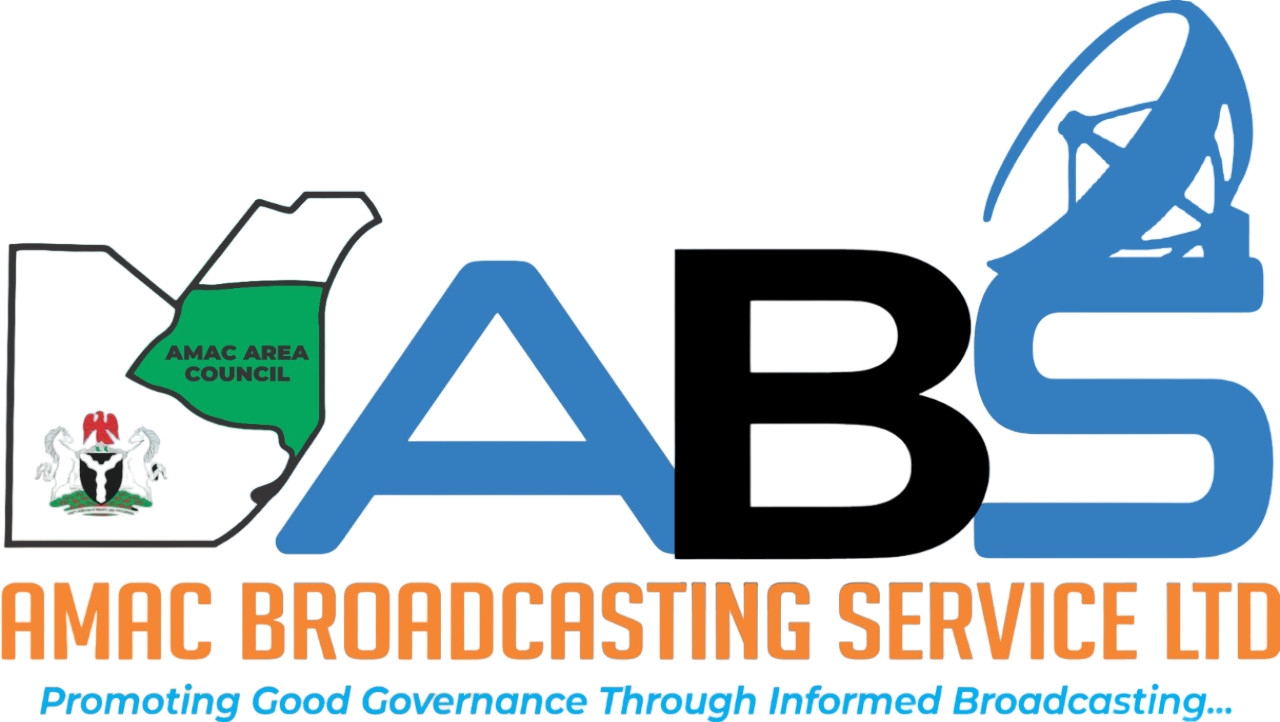
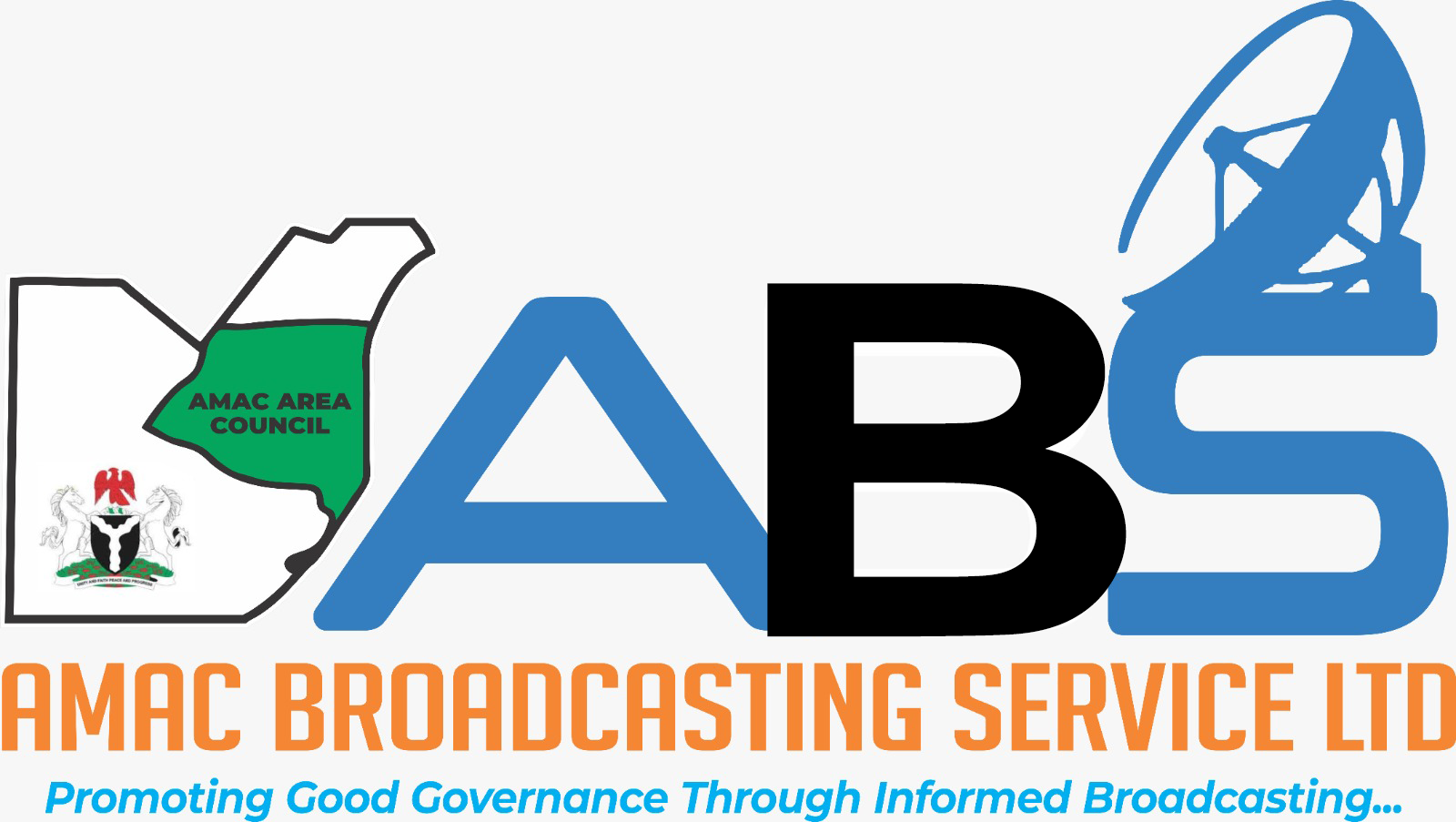


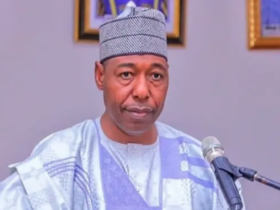
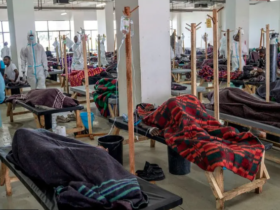
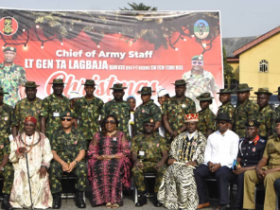


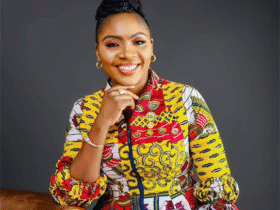


Leave a Reply